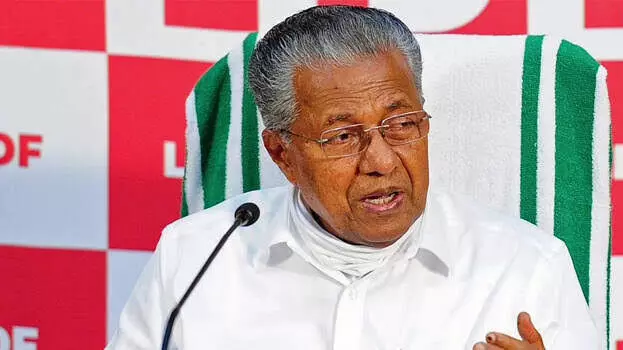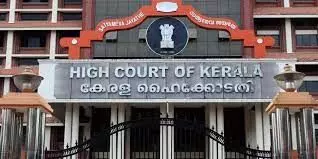
Is the CPI-M afraid of Lokayukta?
text_fieldsCommenting on the state cabinet ordinance amending the Lokayukta Act, CPI state secretary Kanam Rajendran said: " The public are unable to understand why this ordinance before the assembly convenes. With just one month to go before the House convenes, if the bill is tabled in the Assembly, all parties could have expressed their views. It is this denial that led to controversy. It is true that there was no proper political consultation on the issue. " Kanam's remarks reflect the dissatisfaction over the fact that the cabinet approved the ordinance without any serious discussion and without even consulting the LDF committee. Why is the cabinet trying to implement this policy change so hastily contrary to the declared position of the CPM and the LDF? What urgent legal crisis is bothering the government? Is the CPM afraid of the Lokayukta? The realization that the Kerala Public Men's Corruption (Investigations and Inquiries) Act,1987 could not effectively curb official-ministerial corruption in the state prompted the Nayanar government, of which 1999 Chief Minister Pinarayi Vijayan was also a member, to pass and implement the Kerala Lokayukta Act.
The Morarji Desai-led Administrative Reforms Commission's recommendation that all states should set up anti-corruption ombudsmen also gave a direction to the states. It was also decided that the Governor would appoint as Lokayukta a etired Supreme Court Judge or High Court Chief Justice, recommended by the Chief Minister, the Speaker and the Leader of the Opposition, to make any institution directly accessible to any citizen against corruption and mismanagement, from the Panchayat Member to the Chief Minister and from the Lower Division Clerk to the Chief Secretary. The most striking feature of this legislation, which has been widely praised by legal scholars in the country, was that if the Lokayukta ruled after a trial that the rulers or officials had shown corruption or nepotism, they would be obliged to resign or be removed from office. Minister KT Jaleel's resignation following allegations of nepotism was an event that reflected the importance and relevance of the Lokayukta. However, with the new amendment, the Chief Minister will have the power to decide on the resignation and defer it for up to three months if a similar situation arises. In the case of employees, that 'right' belongs to their superiors. The Executive can then decide whether to implement or overturn the judgment of the Lokayukta. In effect, the state government has, with the stroke of a single ordinance, made the Lokayukta irrelevant as a toothless watchdog.
The current amendment introduced by the state government was contained in the draft presented in the 1999 Assembly. According to house records, CPM leaders strongly opposed the move. G. Sudhakaran opined that if the Lokayukta says that public servants have committed crimes, then it is insulting for them to remain in office. When the Lokpal was introduced in the Lok Sabha, the CPM and the Left were of the view that strict legislation was needed to curb corruption. Therefore, the abrupt somersault in the CPM's stand seems to have been prompted by the apprehensions about the outcome of complaints in the Lokayukta against the Chief Minister and minister Dr R Bindu, as alleged by the Opposition.
Therefore, what Madhyamam has to say about this is nothing different from what the Chief Minister Pinarayi Vijayan wrote and advocated in 2019: " The popular comment about ombudsman is that it is a watch dog that can bark but can never bite. However, the Lokayukta, the Kerala version of the Ombudsman, has been legally given extensive powers. Our Lokayukta is a system that can bite if needed. The Lokayukta can be approached for correction of various trends in the administrative sector such as corruption, inefficiency, carelessness and delay. The Lokayukta will be able to provide appropriate redressal of grievances to the complainant, avoid technicalities and delays, and recommend action against those responsible." This state of affairs should continue. That is the way to make the administration-bureaucracy more transparent and corruption-free. Therefore, the government should be prepared to withdraw this ordinance. Attempts to stifle the Lokayukta are not democracy; it is to be called dictatorship.

























